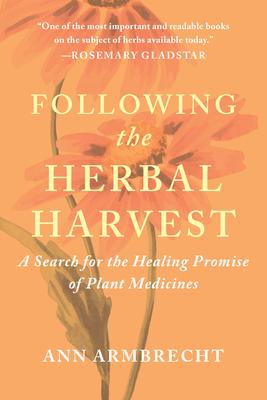From tulsi to turmeric, echinacea to elderberry, medicinal herbs are big business--but do they deliver on their healing promise to those who consume them, those who provide them, and to the natural world?
"An eye-opener. . . . [Armbrecht] challenges ideas of what medicine can be and how business practices can corrupt, and expand, our notions of plant-based healing."--The Boston Globe
"[This] is one of the most important and readable books on the subject of herbs available today. Ann's story of her journey and the amazing message her book conveys moved me to tears. . . . Thank you, Ann, for listening to the plants as deeply as you have, for pointing the way forward, and for having the courage to lead us there."--Rosemary Gladstar, author of Rosemary Gladstar's Medicinal Herbs
Using herbal medicines to heal the body is an ancient practice, but in the twenty-first century, it is also a worldwide industry. Yet most consumers know very little about where those herbs come from and how they are processed into the hundreds of products that fill store shelves. In Following the Herbal Harvest (originally published in hardcover as The Business of Botanicals), author Ann Armbrecht embarks on a journey to follow herbal medicines from source to shelf. Her travels in North America, Europe, and India reveal the inner workings of the botanicals industry as she confronts complex questions about the ethical and ecological issues of mass production of medicines derived from these healing plants, many of which are imperiled in the wild.
This is the first book to explore the interconnected web of the global herb industry and an invaluable resource for conscious consumers who want to better understand the social and environmental impacts of the products they buy.
Inspired by her travels, Ann founded the Sustainable Herbs Initiative (SHI), which is devoted to motivating change in the herbal products industry. In a new epilogue for the paperback edition, the author describes how SHI's Learning Lab and Learning Journeys are bringing together stakeholders from herbal product companies to explore how they might collaboratively work to address the problems of poverty, biodiversity loss, and the climate crisis.
Because, as Ann writes, "Herbal medicine is about creating wellness, resilience. It is about wholeness. From that, a huge industry has developed . . . an industry that I discovered too often ignores the social, environmental, economic and spiritual causes of disease in the world. And yet, we can't be well until and unless the water we drink, the air we breathe, and the soil in which our food is grown is well. What does it mean to be in the business of wellness in a world that is not well?"
"Armbrecht masterfully manages the challenges and complexity of her source material . . . [She] is a spirited storyteller . . . [and] presents all this with the skill of an anthropologist and the heart of an herbalist."--Journal of the American Herbalists Guild
"For those who loved Braiding Sweetgrass, this book is a perfect opportunity to go deeper into understanding the complex and co-evolutionary journey of plants and people."--Angela McElwee, former president and CEO of Gaia Herbs
